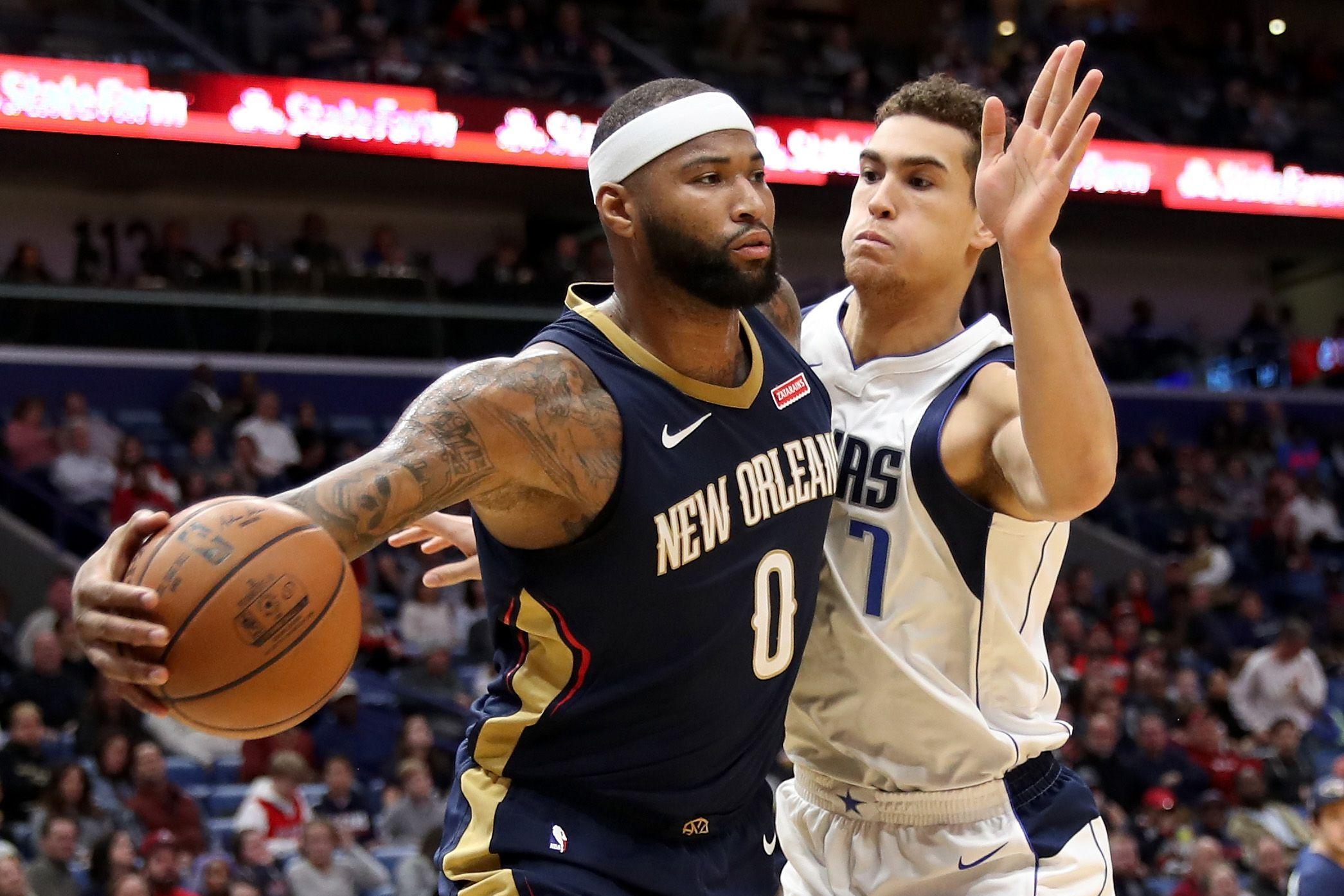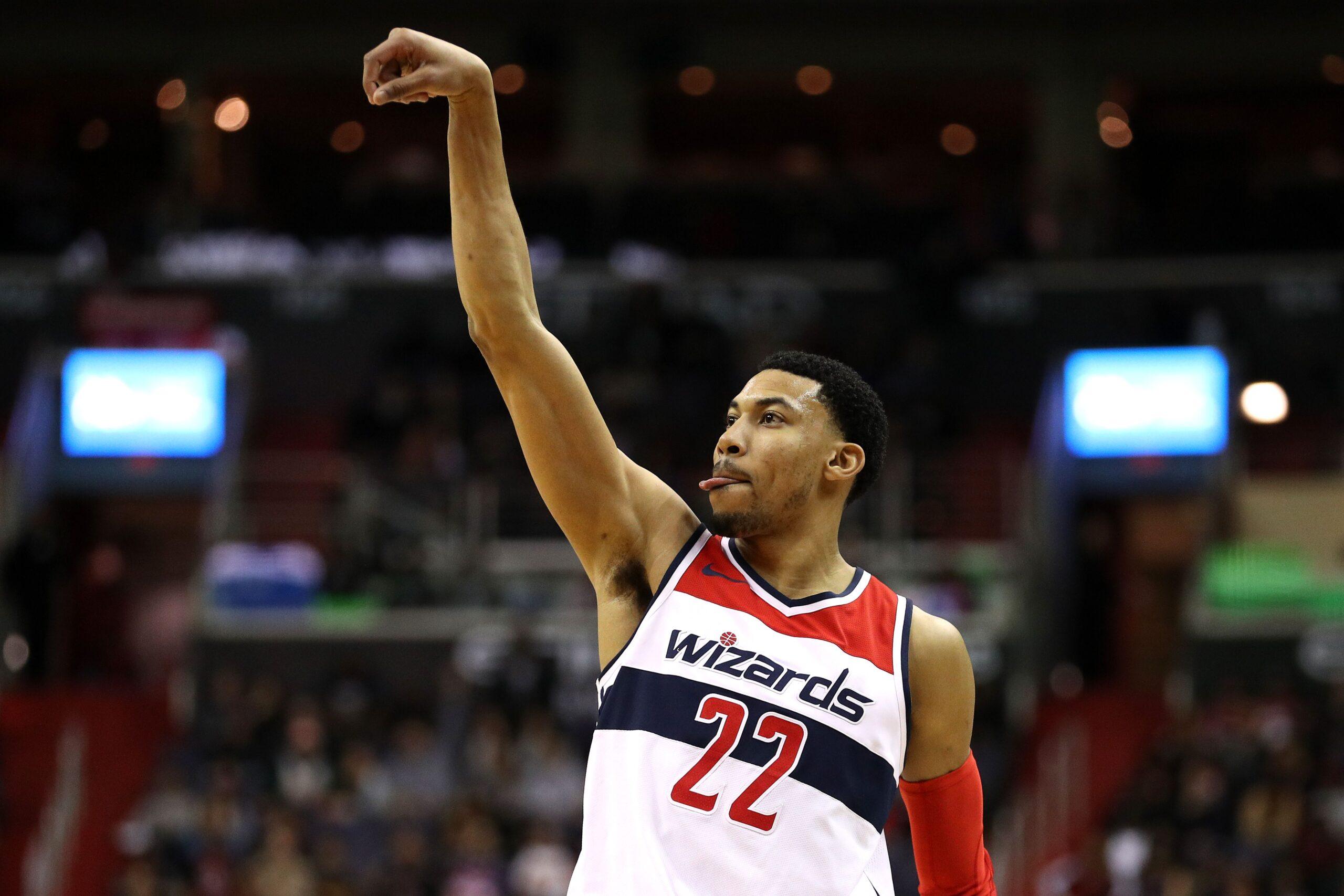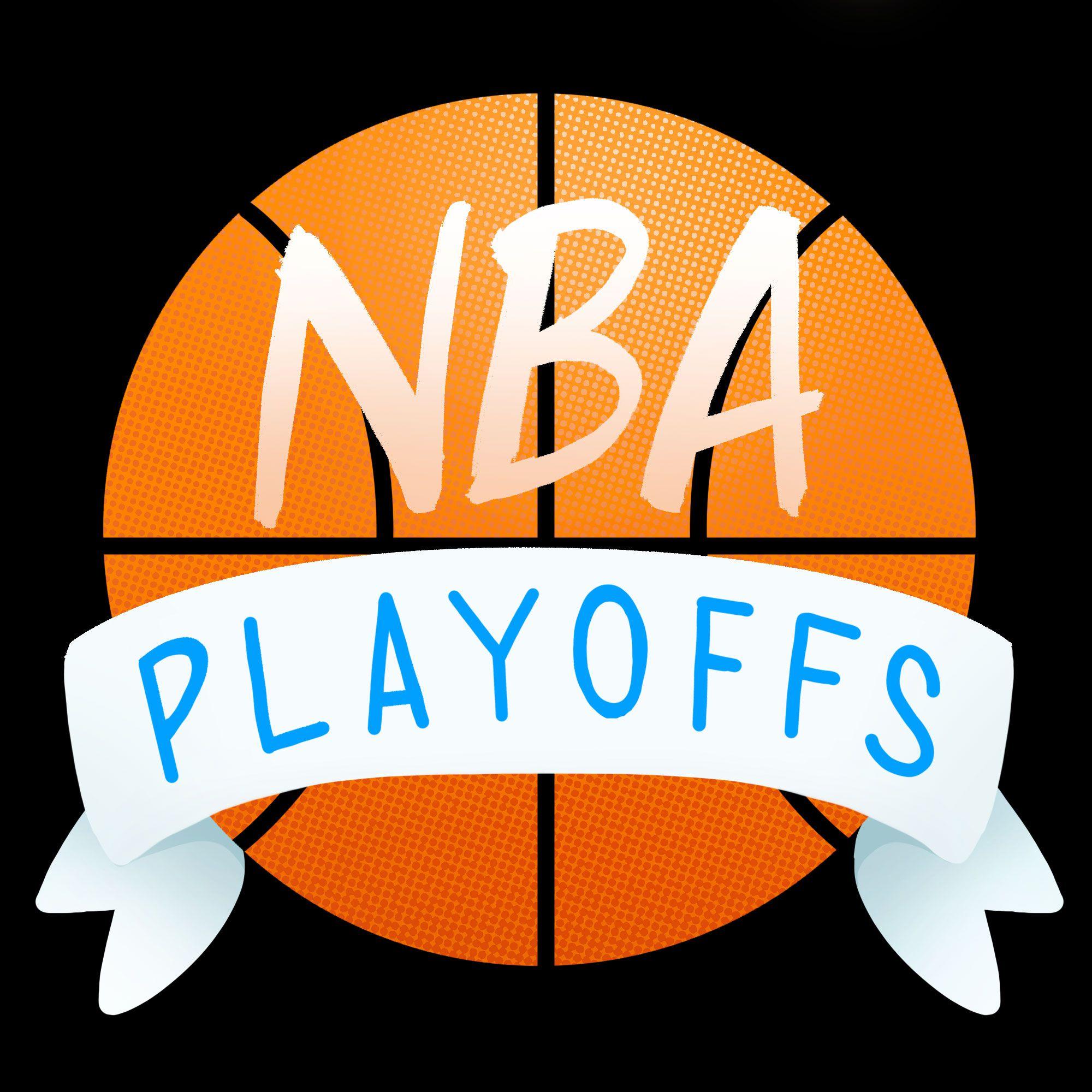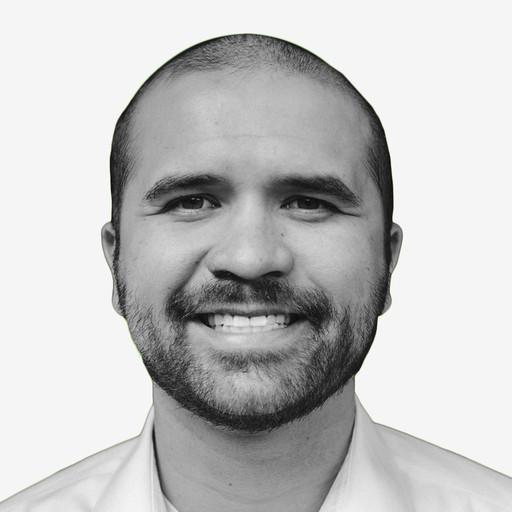The Pelicans were one of the best stories of the first round of the playoffs, but they ran into a brick wall against the Warriors. There wasn’t much they could do in the five games played. As soon as the series between the two teams looked competitive, Golden State head coach Steve Kerr went to his trump card, starting the Hamptons Five to close out the final two games. New Orleans now enters the offseason with more questions than answers, especially about the fate of DeMarcus Cousins, a free agent coming off a devastating Achilles injury. Even if he’s able to come back at 100 percent, he won’t fix the team’s biggest matchup issue with Golden State.
The Warriors are one of the biggest and longest teams on the perimeter in the NBA, while the Pelicans are one of the smallest. Golden State puts waves of supersized wings around Steph Curry: Andre Iguodala (6-foot-6), Klay Thompson (6-foot-7), Shaun Livingston (6-foot-7), and Kevin Durant (somewhere around 7 feet). New Orleans, in contrast, doesn’t start a single player between 6-foot-5 and 6-foot-9, and the Pelicans don’t have a true small forward on their roster. Their wing rotation consists solely of converted guards (Jrue Holiday and E’Twaun Moore) and small-ball power forwards (Nikola Mirotic, Solomon Hill, and Darius Miller).
The result was size mismatches up and down the lineup. Holiday, at 6-foot-4, was the primary defender on Durant despite giving up around 8 inches. New Orleans head coach Alvin Gentry wanted to keep a relatively longer defender like Moore (6-foot-4) on Curry to contest his shot, which left Rajon Rondo (6-foot-1) trying to guard Thompson. The matchups didn’t get any easier for Gentry when he went to his bench, since Ian Clark (6-foot-3) was the only reserve guard who got any playing time. It was death by a thousand cuts for the Pelicans, who had a defensive rating of 109.7 for the series.
Holiday did about as well as could be expected against Durant, given the size differential. He tried his best Tony Allen impression: pressing up on the Warriors superstar and getting into his airspace, staying attached to him all over the floor, fighting over screens, and contesting his shot without fouling. In Game 3, the Pelicans’ sole win in the series, Holiday held Durant to 22 points on 8-of-18 shooting. KD eventually figured him out, though, putting the dagger in the Pelicans with 38 points on 15-of-27 shooting in Game 4.
There was also a huge opportunity cost to keeping Holiday on Durant, since he wasn’t able to guard either of the Splash Brothers. He dominated his matchup with Damian Lillard in the first round, taking the Blazers star completely out of the series. Steph was hobbled this time around, missing Game 1 while recovering from an MCL injury and coming off the bench in Game 2, but a healthy version of the Warriors’ other superstar might have forced Gentry to keep his best perimeter defender on him. They need to give Holiday help so that he can move back to his natural position on defense. That’s something the Pelicans have to keep in mind when mapping out their summer.
New Orleans is in the same position Houston was in two years ago, after it had been eliminated by Golden State in 2015 and 2016. The Rockets had a superstar (James Harden) in his prime, and the only way for them to win a championship with Harden was to get through the Warriors. Every move Houston GM Daryl Morey has made over the past two seasons has been with Golden State in mind, and New Orleans has to adopt a similar mentality. The Pelicans have Davis under contract for only two more seasons, with a player option for 2020-21. They don’t want to end up like Toronto, getting better every year without actually getting any closer to beating the Goliath standing in their way.
It won’t be easy. The Pelicans won’t have much financial flexibility going forward: They already have $92.8 million on the books for next season, without counting Cousins, Rondo, or Clark. Bringing Cousins back would prevent them from doing much to upgrade their wing situation. A Twin Towers lineup with Cousins and Davis might force the Warriors to keep one of their centers in the starting lineup instead of Andre Iguodala, but the Pelicans would still have the same size issues on the perimeter. Mirotic wouldn’t be nearly as effective at the 3 on offense as he has been at the 4, and he certainly couldn’t keep up with Curry, Thompson, or Durant on defense. The Pelicans would have to run it back with the same undersized trio of Moore, Holiday, and Rondo guarding those guys, a scenario that doesn’t inspire much confidence.
The only tweak Gentry could make is something he rarely tried in this series: putting Davis on Durant. Even though Davis has the best combination of size and athleticism to match up with Durant, he’s also New Orleans’s primary rim protector, as well as its only frontcourt player who can even attempt to stay in front of Curry on the pick-and-roll. Having Davis chase Durant around the 3-point line would leave Cousins on Draymond Green. Cousins had to be hidden as much as possible on defense even when he was healthy; the Pelicans would have to hide him more, not less, after coming off of an Achilles injury.

Cousins has never been in particularly good shape in his nine-year career in the NBA, and he has a long history of resting on defense and not hustling back in transition. He won’t be able to cut any corners after suffering one of the most devastating injuries in basketball. Wesley Matthews, one of the hardest-working players in the NBA, was never the same after suffering the same injury in 2015. Cousins will have to dedicate himself to rehabilitation and transform his body, since any extra weight will make it even harder for him to regain the explosiveness that made him so dynamic.
Paradoxically enough, keeping Cousins could also prevent New Orleans from playing the offense necessary to punish Golden State’s small-ball lineups. He was third in the NBA in touches per game this season at 89.4, and it’s no coincidence that Davis’s offensive explosion began after his injury. Davis’s usage rate went from 25.2 in the 1,096 minutes he played with Cousins this season to 32.7 in the 1,635 minutes he played without him. The Pelicans need that version of Davis against the Warriors. He wasn’t able to dominate Golden State in the same way he did Portland, but there’s still plenty of room for him to improve.
It’s easy to forget that Davis is still only 25. Durant, now 29, has grown tremendously over the past four years, particularly as a playmaker. Davis needs to make a similar leap: He averaged 30.1 points a game on 52 percent shooting in the playoffs, but only 1.7 assists on 2.6 turnovers. The final step for Davis is becoming a player who creates easy shots for his teammates. No one can guard him one-on-one. Surround him with shooters and New Orleans should be able to generate a good look on every possession, regardless of who it’s playing.
It’s not as simple as just letting Cousins walk, though. This version of the Pelicans doesn’t have enough talent around Davis to compete with the Warriors, and they don’t have many other ways to upgrade their roster beyond moving Cousins. New Orleans GM Dell Demps would have to handle the situation delicately. Cousins is an unrestricted free agent who could just as easily leave for nothing in the offseason, and he’s a famously prickly personality who wouldn’t appreciate being shopped. Demps would need to convince Cousins to agree to a sign-and-trade, presumably to a capped-out team he would like to play for.

There’s one scenario that stands out: trading Cousins for Otto Porter Jr. and reuniting him with his former Kentucky teammate John Wall in Washington. The Wizards have never won 50 games in the Wall era, and they need to do something to shake up their team. Trading Cousins for Porter would require a lot of financial maneuvering: Washington is paying the luxury tax this season, which means it is hard-capped at $6 million over the apron if it acquires a player in a sign-and-trade. Porter is making $24.8 million this season, so the Wizards wouldn’t have to dump too much salary to make it work. They could use a future first-round pick to move Marcin Gortat or Ian Mahinmi into another team’s cap space, since both would be expendable after a Cousins trade.
The trade works for everyone. Washington could finally pair Wall and Beal with an elite big man, and it could slide Kelly Oubre Jr. into Porter’s spot. New Orleans, meanwhile, could put a smaller and more versatile team around Davis. Porter checks every box: At 6-foot-8 and 198 pounds with a 7-foot-1.5 wingspan, he’s a versatile defender who doubles as one of the league’s best 3-point shooters, hitting 44.1 percent from 3 on 4.1 attempts per game this season. Porter is also an excellent secondary playmaker who can run pick-and-rolls, threaten the defense without the ball, and post up smaller players. The matchups in a potential series with Golden State would make a lot more sense if he were in the fold: Porter on Durant, Holiday on Curry, Davis on Green, Moore on Thompson, and Mirotic or Rondo or Iguodala.
As the Rockets have shown, building a team that can match up against the Warriors helps against the rest of the league, too. The Pelicans found something when Cousins went down, with Davis at the 5 and Mirotic at the 4. They may keep Davis at the 4 in the regular season to minimize the wear and tear on his body, but moving him to the 5 in the playoffs gives them a gear few teams can match, as the Blazers found out in the first round. New Orleans isn’t that far off. Davis is the best big man in the NBA, and Holiday looks like the second banana the Pelicans envisioned when they traded for him in 2014, now that he’s healthy and entrenched at shooting guard. DeMarcus Cousins isn’t that guy who makes them a legitimate contender, but they can turn him into the guy that does.

